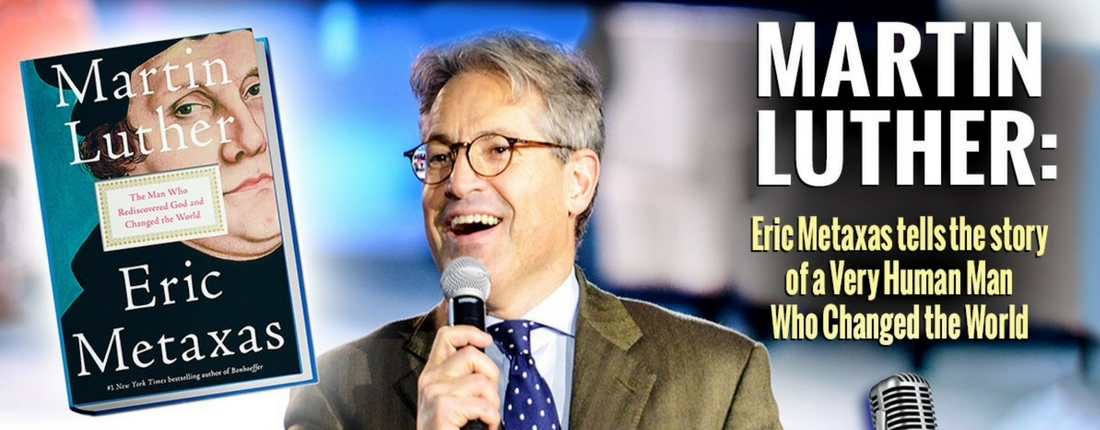It’s the question I asked for months as co-workers rolled their eyes!
I’ve now read Martin Luther by Eric Metaxas—every word, footnote and photo caption. And it was well worth the wait.
Martin Luther by Eric Metaxas is highly soul searching, highly informative and yes, highly entertaining. If you can only find the time for one book on the life of Martin Luther, make it this one!
There’s no question of the scholarly nature of the book. Eric is an author who on one hand uses words I’ve never seen before. On the other hand, I laughed out loud at the “Ericisms”—like, “he flipped his wig,” or “that ought to blow them out of their cassocks.” On a recent flight in one of those laugh-out-loud moments, the man next to me asked what I was reading that was so funny? I told him it was a book on the life of Martin Luther. To which he replied, “I never thought of Martin Luther King as being humorous!”
Martin Luther is a book I don’t intend to “get over” immediately! It’s an intriguing biography of “this courageous monk who had dared to poke Rome in the eye with a sharp stick.” He dared at a time when a Bible was unheard of in the hands of the common people. He sought its truth and once he found it, there was no turning back.
Eric writes: “He [Luther] wanted real answers, and he wanted to read the Bible in such a way that he could get those answers.” Martin Luther thoroughly believed that the Bible was the living Word of God; that we must bring our heart and “whole person” to it. And he did just that!
With all the bounty of God’s Word at my disposal, how can I not do the same?
Martin Luther prayed:
“We must rather take care that we do not give our enemies a reason for boasting over us because we dare not confess what we have taught and are afraid to shed our blood for it. May the merciful Christ prevent such cowardice on our part and such boasting on their part. Amen.”
In my copy of the book I’ve written all over it: underlining, margin notes, question marks, exclamation marks—passages I want to remember and chew on further.
Jan Huss was highly revered by Martin Luther. A century before Luther’s 95 Theses, Jan Huss was speaking against the church selling indulgences to parishioners. In 1406, he published a Czech translation of the Bible that included the New Testament, and the Psalms. He was ultimately called before the Holy Roman Emperor to account for his doctrine. Instead he was arrested, condemned as a heretic and commanded to recant or be burned at the stake.
As his sentence was about to be carried out, he was given one more chance to recant. One account says he prayed: “Have mercy on my enemies.“ And as the flames engulfed him, Jan Huss was heard reciting the Psalms.
One of my margin notes comes from Eric’s words, in a reminder from Acts chapter five. Peter and Paul would not stop talking about Jesus. The leaders wanted to put them to death. But Gamaliel said, “Let them go! For if their purpose is of human origin, it will fail. But if it is from God, you will not be able to stop these men; you will only find yourselves fighting against God.”
Read the Book!
Evelyn Gibson
Ambassador team member and Colson Center Fellow









Looking forward to reading the book. Thank you for recognizing and honoring what God did through Martin Luther 500 years ago today – inspiring!